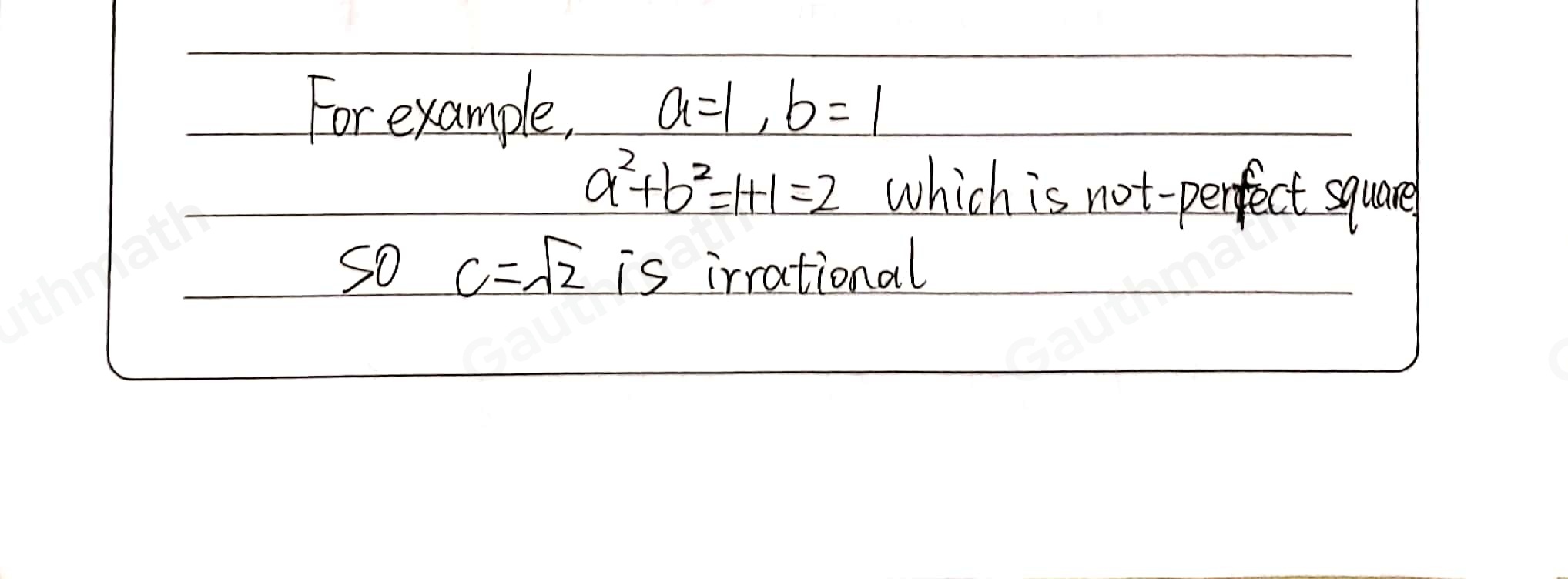The Pythagorean theorem states that the sum of the squares of the legs of a right triangle is equal to the square of the hypotenuse by the formula a2+b2=c2 If a is a rational number and b is a rational number, why could c be an irrational number? The square of rational numbers is irrational, and sum of two irrational numbers is irrational. The product of two rational numbers is rational, and the sum of two rational numbers is irrational. The left side of the equation will result in a rational number, which is a perfect square. The left side of the equation will result in a rational number, which could be a non-perfect square.
Question


